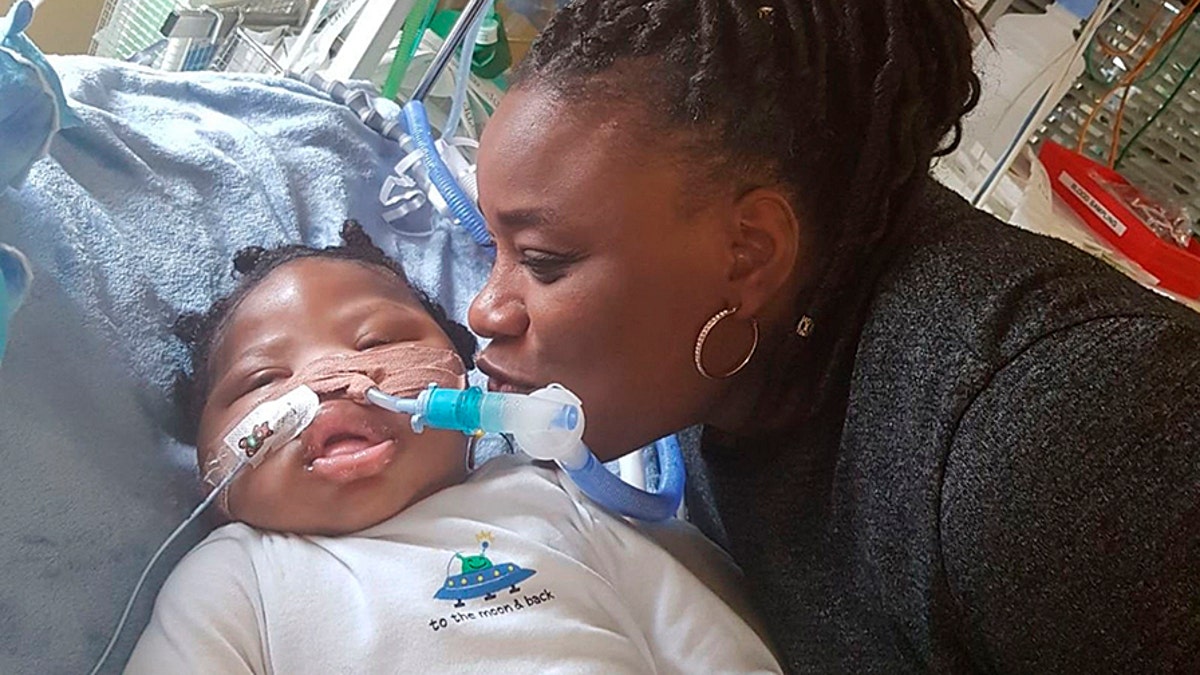
Isaiah Haastrup with his aunt Dahlia Thomas at King's College Hospital in London. A judge ruled that the 11-month-boy could be taken off life support despite the parents' objection. (Irwin Mitchell/Family Handout)
An 11-month-old suffering from severe brain damage may have his life support turned off after a British judge ruled Monday in favor of doctors arguing to terminate his care and against the boy's parents.
Justice MacDonald of the High Court on Monday said further treatment on Isaiah Haastrup, who doctors said suffered “catastrophic” brain damage after being deprived of oxygen when he was born, was “not in [the baby’s] best interest,” the BBC reported.
“Examining Isaiah’s best interests from a broad perspective...I am satisfied that it is not in his best interests for life-sustaining medical treatment to be continued. That, with profound sadness, is my judgment,” the judge said during his ruling.
The child’s parents, Takesha Thomas and Lanre Haastrup, 36, argued for continued treatment on their son with only palliative care. The father told the BBC he was “disappointed” in the judge’s ruling.
"We will be speaking to the lawyers to see what they say,” Haastrup added.
Doctors at London’s Kings College Hospital said Isaiah has a low level of consciousness due to the brain damage. The baby also couldn’t move or breathe on his own and was connected to a ventilator at all times.
But the grieving Thomas argued her son was in fact responsive.
"When I speak to him he will respond, slowly, by opening one eye,” she told MacDonald. "I see a child who is injured. He needs love. He needs care. I have it. I can give it.”
She added: "To say it is so poor, it is not worth living, that is not right. It is not their decision to make."
Fiona Paterson, a lawyer representing King's College Hospital NHS Foundation Trust, said there was overwhelming evidence that stopping Isaiah’s treatment was the best option.
Monday's decision renewed the contentious debate about who should make life-and-death healthcare decisions for children after a similar saga gripped Britain during the summer.
Charlie Gard, who suffered from a rare genetic disorder called mitochondrial depletion syndrome, was embroiled in a publicized court battle until his death in late July. Gard’s parents wanted to bring their son to the United States for an experimental treatment they believed could help him.
But the doctors at the Great Ormond Street Hospital argued the treatment wouldn’t help and would only cause more suffering.
British courts and the European Court of Human Rights all sided with the hospital in its bid to remove life support and allow Charlie to die naturally.
